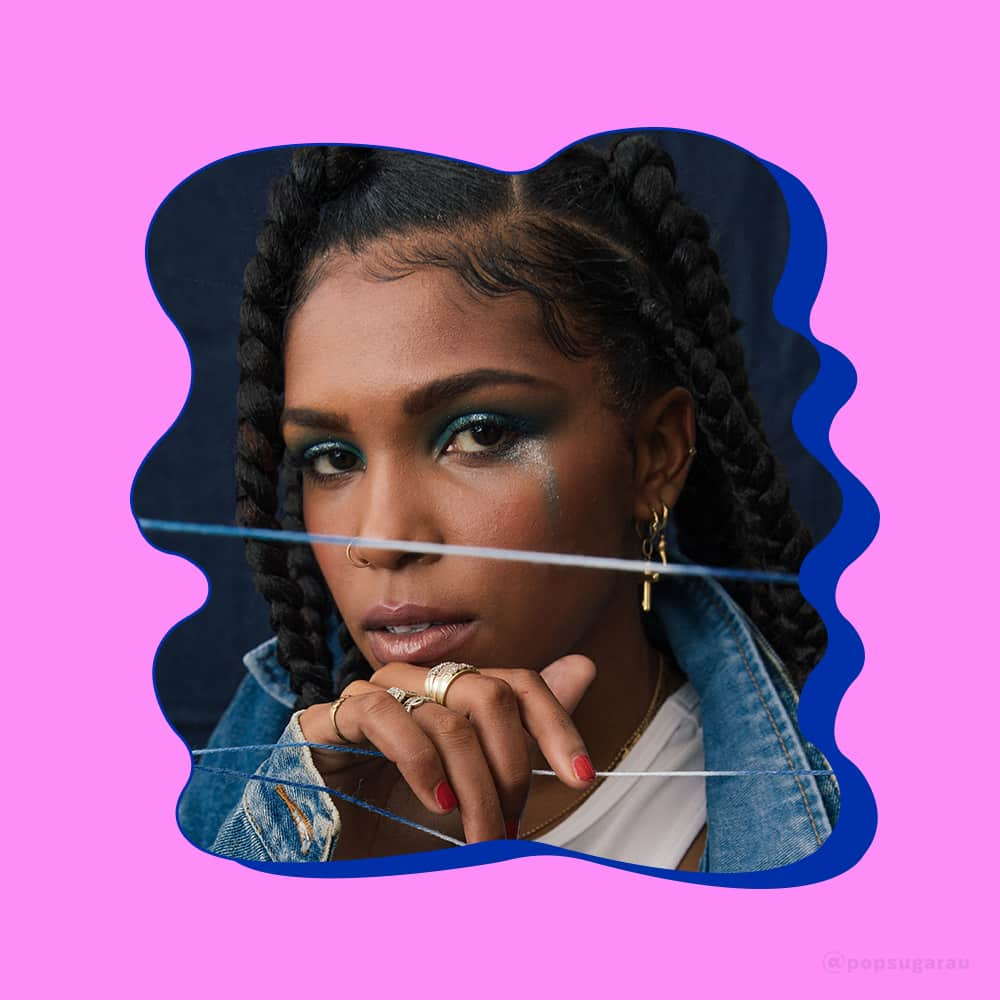
- POPSUGAR Australia
- Celebrity
- Liyah Knight: What Does a Black Artist “Sound” Like?
Liyah Knight: What Does a Black Artist “Sound” Like?

POPSUGAR Australia is dedicating the month of September to featuring the next generation of inspired thinkers and courageous individuals who are building and manifesting a brighter future — because the next gen is unstoppable. We will deliver personal essays from young Australians who are making a name for themselves, as well as inspiring thought pieces and interviews with rising talent across different industries throughout the month. Find all of our pieces here, and if there’s someone you think is missing, email our editor so we can share their story — abardas@valmorgan.com.au.
I like playing this little game where I release music so far removed from “Urban/RnB/Rap,” then sit back and watch how people find a way to re-connect the dots.
A Black person not rapping or laying down sultry vocal runs? How ever will we spin this?
It’s an age-old question. How do we return Black people to their respective boxes?
I’m here to tell you that I, amongst many artists, am not going anywhere and I intend on challenging the confines so long as I have access to a recording booth.
When trailblazing Californian artist Tyler, The Creator released Igor, he asked listeners to not go into the project expecting a “rap album” and rightfully so. There were many layers both sonically and thematically to the body of work, and it would almost be disrespectful to reduce it to just a “rap album.”
Alas, Tyler took out the Grammy for Best Rap album that year; a bittersweet achievement to receive accolades for an album in the wrong category.
Tyler said of the win: “On one side I’m very grateful that what I made could be acknowledged in a world like this. But it also sucks that whenever we — and I mean guys that look like me — do anything that’s genre-bending or anything, they always put it in a rap or urban category. And I don’t like that urban word. It’s just a politically correct way to say the N-word to me.”
For those who might not be aware, up until recently “Urban” was a broader, less genre-specific net of confinement used to categorise us. Black people making pop? Urban. Black electronic? Urban. Labels around the world had departments that oversaw the projects of “Urban” artists and Australia was no exception.
When I started writing music, it was a safe place where I could truly write my own narrative. It was never a conscious effort to make things somewhat leftfield. That was just a result of being influenced by different music.
At home, my mum would rinse 90’s R&B classics, while at school all the kids introduced me to ADTR (A Day To Remember) and All Time Low. In locker rooms, we listened to braggadocious rap to get hyped for games, while on the long bus trips home I’d slide on my headphones and listen to some soothing folk.
By the time I’d finished writing my first EP, Nesting, I realised those influences were traceable in my music. ‘Tipsy’ was unquestionably indie-pop, ‘Somebody You’ was stripped back folk and a few bars were dropped in ‘Yikes’. I was so proud of the project we’d made and how far it stretched in terms of an introduction.
Whilst I was overwhelmingly grateful for the love it received, I couldn’t help but feel a sense of unease with the constant attachment to R&B and soul. ‘If you like SZA, listen to Liyah Knight, sultry R&B, R&B-fusing, etc’. I knew bedroom pop was a thing, but one article went so far as to call my music “bedroom R&B”.
Something didn’t feel aligned. It felt like I was being celebrated as an artist, but not actually being heard.
I understand the advantages of categorisation in terms of marketing. There’s an audience for rap, psychedelic, and metal, and wherever there’s an audience, there are returns.
When a white man speaks fast over 808-heavy trap beats, the industry has no qualms about acknowledging him as a rapper. But when a Black person does anything outside of hip-hop, soul or more broadly “urban”, suits sit around a table scratching their heads wondering how they’re going to market them. That’s because society is so used to assigning our identities, which is getting increasingly harder to do as Black artists continue to push boundaries.
When I released ‘Threads’ I was nervous. The executive producer of my upcoming EP Travellers Guide described it as “gallant”; The song was electronic, indie, dance and folk all in one, but no trace of R&B. The goal this time around was to stretch for the sake of making a point — individuality is no longer a luxury reserved for the majority.
I want people to listen to the music of Black artists and hear music, not just colour. That’s not to say I don’t want you to see colour, because that would be counter-productive. See our Blackness and enter the listening experience without preconceived ideas of what that’s supposed to sound like.
I’m taking up space so people after me have more room to move. Is it uncomfortable at times? Absolutely. Would it be easier to secure an audience if I gave people what they expected? Probably. But that’s not what I’m trying to do. We need more room and no one is going to hand it to us, so I want to be a part of creating it.
When I break into international markets, it’s not going to be off the back of a fabricated identity. It will be every shade of grey in me, because that’s what I want for the future of Australia; more grey, more outside the lines and more representation for Black artists.
You can follow Liyah Knight on Instagram.


